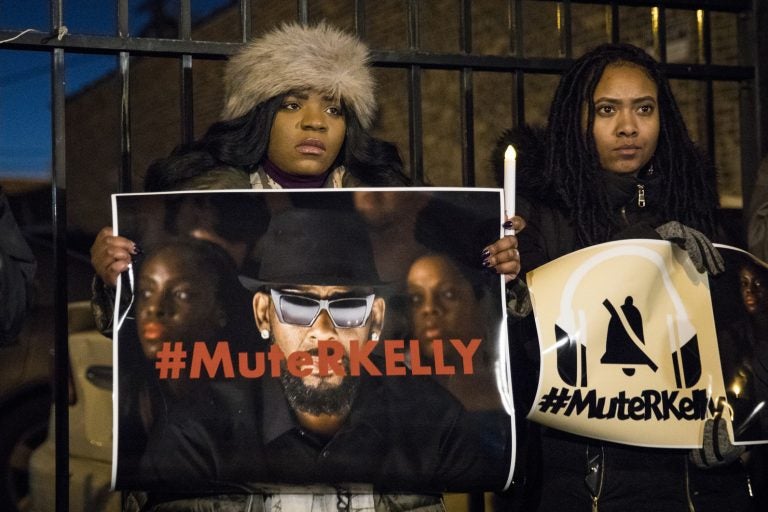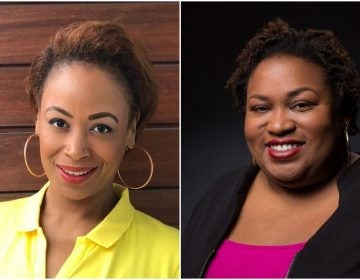Why ‘Surviving R. Kelly’ has some black women feeling more included in #MeToo
Why have many black girls and women felt the social media movement that has exposed the misdeeds of powerful men has left them behind, until now?
Listen 13:51
#MuteRKelly supporters protest outside R. Kelly's studio, Wednesday, Jan. 9, 2019 in Chicago. Lifetime's "Surviving R. Kelly" series which aired earlier this month, looks at the singer's history and allegations that he has sexually abused women and girls. Kelly, who turned 52 on Tuesday, has denied wrongdoing. (Ashlee Rezin/Chicago Sun-Times via AP)
Many of the most visible victims to come forward in the #MeToo movement have been white women. Now, the new Lifetime docuseries “Surviving R. Kelly” is raising the voices of the victims of the singer’s alleged sexual misconduct, many of whom are African-American. So why is #MeToo, which was started by a black female activist, seen as excluding black women? On this episode of The Why, we talk with Philadelphia Inquirer columnist Jenice Armstrong about why so many black women have felt left out of the movement and why that could be changing now.
WHYY is your source for fact-based, in-depth journalism and information. As a nonprofit organization, we rely on financial support from readers like you. Please give today.






